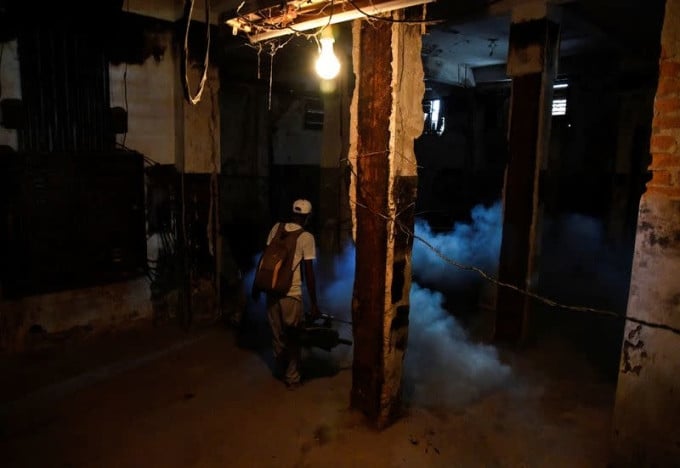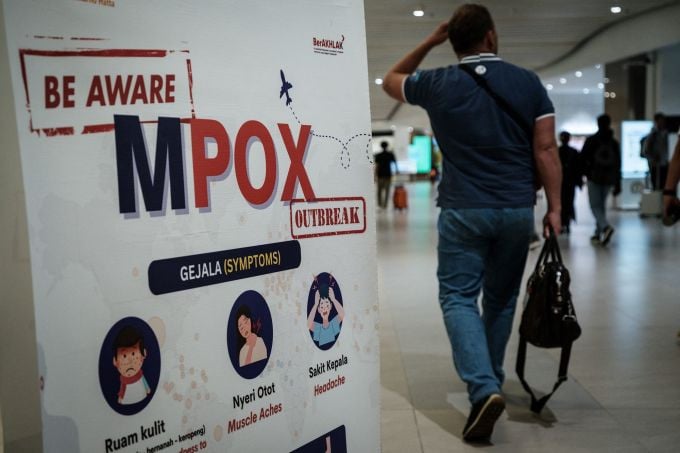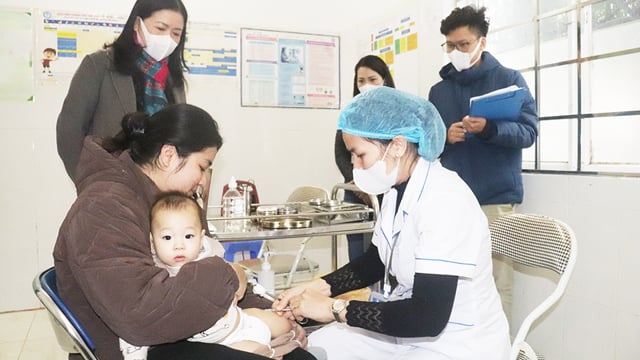
There is global concern about the spread of mpox, a disease caused by the monkeypox virus. The mortality rate of this disease used to be 10% but has now tripled.
In August this year, Sweden became the first country outside Africa to confirm a case of the new mpox strain, which has spread to Asia. Thailand has confirmed one case, and other cases in Pakistan and the Philippines are suspected.
The World Health Organization (WHO) has declared the mpox outbreak in more than 10 Central African countries an "international public health emergency", its highest level of alert.
The US Centers for Disease Control and Prevention (CDC) recommends two doses of the Jynneos mpox vaccine for people at high risk of exposure and infection with the virus.
In addition, tourists are also advised to use mosquito repellent and wear long clothes treated with permethrin, an active ingredient that paralyzes the nervous system of parasites such as lice, fleas, and ticks. This move is to help tourists limit the risk of contracting mosquito-borne diseases such as malaria and dengue fever while traveling.
To date, no dengue vaccine has been widely available to travelers, but in recent years, many people have been getting the Qdenga vaccine. This vaccine has been given in the UK, the European Union, and some Asian countries. In the US, people get the Dengvaxia vaccine.
However, according to Dr Nicky Longley, infectious disease consultant at the UCL Hospital for Tropical Diseases in London, England, the dengue vaccine is "not the perfect solution for travelers." The Qdenga vaccine reduces the risk of severe illness and death if the patient gets dengue again. If travelers have not had dengue before, the Qdenga vaccine "is unlikely to provide protection."
Nicky advises that travellers who have not had dengue fever should postpone the vaccination. Instead, people should take the precautions outlined above to avoid mosquito bites.
For those who have had dengue, Qdenga is an option. British tourist Chris Dwyer traveled to Malaysia in 2014 and contracted dengue. He still remembers the joint pain, fatigue, fever, and hospitalization for IV fluids. Dwyer has since recovered but does not want to go through that pain again and is considering Qdenga because he travels frequently to Asia.
Getting vaccinated against malaria before traveling to Africa is also something health experts recommend for travelers. People in many African countries are now vaccinated against malaria to reduce infections and mortality rates in young children.
Anniina Sandberg, founder of the travel company Visit Natives from Finland, and a 20-year-old enthusiast of exploring remote parts of Africa, has experience in preventing malaria while traveling. Currently, in addition to carrying anti-malaria drugs, Sandberg also carries a mosquito net to avoid mosquito bites when traveling to Africa.
As a student, she traveled to Tanzania and contracted typhoid. Initially, Sandberg thought she had malaria and was treated for the disease. However, her condition worsened. It was later discovered that she had not only malaria but also typhoid fever, a bacterial infection common in areas with poor sanitation and limited access to clean water.

Therefore, getting the typhoid vaccine and booster doses is also one of the recommendations that Sandberg wants to share with other travelers.
“No matter how careful you are, you can never eliminate all health risks when traveling,” says Sandberg.
Sandberg also came close to getting rabies. A few years ago, while visiting the Datoga tribe in Tanzania, where people raise sheep all year round on the savannah, she discovered a sick sheep. Although she tried to stay as far away from the animal as possible, when she wasn’t paying attention, the sheep licked Sandberg’s ankle wound. Because the place she was traveling to was far from the hospital and difficult to get to, the female tourist rushed back to her hometown of Helsinki to get a rabies vaccine.
Dr Nicky Longley also advises travellers to get a rabies vaccine as soon as possible if they think they may have been exposed. The time it takes for rabies to develop depends on where the wound is infected. Depending on the case, the rabies virus can take weeks or months to infect the nervous system, spinal cord and brain. "Once it has infected the patient, there is no hope of survival," Dr Nicky said.
Successful post-exposure treatment is also a race against time. Many travelers choose to seek treatment at a local hospital where they are traveling, rather than flying home and later discovering they were not vaccinated properly.
Dr Nicky also warned that rabies vaccination is "extremely important" because the disease is quite common, present in 150 countries and territories.
Tick-borne encephalitis (TBE) is another disease that health experts recommend travelers consider getting vaccinated against before traveling to tropical regions. Nicky also recommends getting a TBE vaccine before traveling to many Central European countries, especially if your itinerary includes hiking or camping.
TBE is not rabies, but it has serious consequences. If not treated promptly and properly, it can lead to disability and death. If your travels take you to places where you are likely to come into contact with a variety of ticks, getting vaccinated against the disease is “well worth it,” says Nicky.
Other vaccines recommended by the CDC for children up to 10 years of age include hepatitis A, measles, Covid-19, mumps, and rubella. People may also consider getting additional vaccines such as tetanus and diphtheria.
For adults, travelers should keep a record of their vaccinations and booster shots. When planning a trip, travelers should consult the CDC of their country to ensure they have received all recommended vaccines.
TH (according to VnExpress)Source: https://baohaiduong.vn/cac-loai-vaccine-nen-tiem-truoc-khi-di-du-lich-393419.html


![[Photo] Close-up of Vietnam's sniffer dog team searching for earthquake victims in Myanmar](https://vstatic.vietnam.vn/vietnam/resource/IMAGE/2025/4/1/d4949a0510ba40af93a15359b5450df2)
![[Photo] General Secretary To Lam receives King Philippe of Belgium](https://vstatic.vietnam.vn/vietnam/resource/IMAGE/2025/4/1/e5963137a0c9428dabb93bdb34b86d7c)

![[Photo] Prime Minister Pham Minh Chinh meets with King Philippe of Belgium](https://vstatic.vietnam.vn/vietnam/resource/IMAGE/2025/4/1/be2f9ad3b17843b9b8f8dee6f2d227e7)

![[Photo] President Luong Cuong and King Philippe of Belgium visit Thang Long Imperial Citadel](https://vstatic.vietnam.vn/vietnam/resource/IMAGE/2025/4/1/cb080a6652f84a1291edc3d2ee50f631)























![[6pm News] Of the 40 newly discovered gold mines, 4 are in Thanh Hoa](https://vstatic.vietnam.vn/vietnam/resource/IMAGE/2025/4/1/08644991aa1b4030a549159f2f87c0d6)


![[Photo] Myanmar's capital in disarray after the great earthquake](https://vstatic.vietnam.vn/vietnam/resource/IMAGE/2025/4/1/7719e43b61ba40f3ac17f5c3c1f03720)


























































Comment (0)